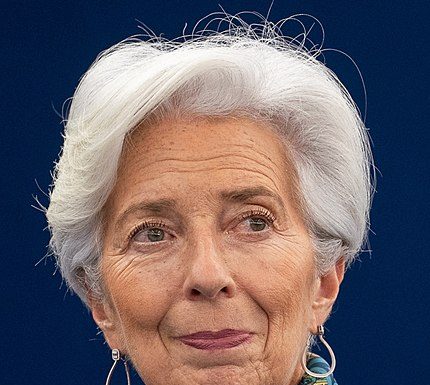A key component of promoting trade and foreign investment is to make sure that whenever disputes arise, there are robust judicial mechanisms to resolve them. Such disputes can arise between governments, on the terms of trade deals, for example, but disputes between governments and private investors are also conceivable.
In the UK’s new relationship with the European Union, such disputes are being sorted through an arbitration arrangement. For matters relating to Northern Ireland, however, the European Court of Justice remains competent, something which the UK government continues to try to renegotiate.
In Switzerland’s relationship with the EU, no arbiter whatsoever has been foreseen. This is something the EU has tried to change, but so far, no deal on an update on the EU-Swiss relationship has been reached.
In many trade deals, especially the ones concluded 15 to 20 years ago, an arbitration model with the name “Investor-state dispute settlement” (ISDS) was inserted. Over the years, due to foreign investors being able to sue governments through international arbitration, opposition has increased on this, particularly from the left of the political spectrum. This is one of the reasons why the proposed EU-US Trade deal with the name “Transatlantic Trade and Investment Partnership (TTIP)” failed to materialise.
ISDS was also one of the reasons why the Belgian region of Wallonia refused to ratify the Canada-EU Comprehensive Economic and Trade Agreement (CETA). Ultimately, a compromise entailed that a new “Investment Court System” would be created to serve as the judicial forum to resolve disputes.
The whole idea of the “Investment Court System”, which the EU is currently implementing, is that unlike ISDS, the judges would not be selected by the parties or arbitral institutions on an ad hoc basis for each dispute but rather, like existing national courts, the judges would be permanent civil servants and all appointed by public institutions. This in a bid to counter the criticism that private arbitrators would be more vulnerable to conflicts of interests and that they would tend to favour private investors over governments. It must be mentioned that the latter is not backed up by the facts, as according to the most recent statistics, about 37 per cent of all concluded cases have been decided in favour of the State, and only about 29 per cent were decided in favour of the investor. About 20 per cent of the cases were settled by agreement.
One multi-country trade deal is the Energy Charter Treaty (ECT), which was designed to increase energy security by providing a framework for energy cooperation and promoting open and competitive energy markets.
In 2020, the Energy Charter Treaty was invoked in seven cases at ISDS tribunals. The Treaty has been the target of criticism, as it would enable foreign investors to target climate change policies.
Fundamentally, however, the arbitration arrangements foreseen by this Treaty work fairly well. The fact that investors know that they can rely on arbitration in case things go wrong with often risky investments in emerging economies, ultimately benefits those emerging economies, who may otherwise have more trouble attracting investment, as investors may not like having to rely on the courts in the countries where they invest.
A case in point here is the legal dispute between Kazakhstan and Moldovan investors, Anatolie Stati and Gabriel Stati. Since 2010, Kazakhstan has been defending itself in a legal battle against both investors over a dispute related to an investment in the Kazakhstan oil sector.
To make a long story short, the private investors initiated arbitration against Kazakhstan under the Energy Charter Treaty (ECT), ultimately winning their case, in particular following a 2013 ruling that they obtained from an arbitration tribunal seated in Sweden.
Kazakhstan argues that the arbitration award was achieved by fraud, and refuses to pay. The Statis have therefore been attempting to seize Kazakh state property in various countries. For that, a judicial ruling by a state court is required. To get the compensation they had been awarded by the arbitration court, in 2017, the Statis managed to get a Belgian court to freeze part of the assets of the Kazakh government’s National Fund, held by the Belgium-registered subsidiary of the Bank of New York Mellon (BNYM) at its London division.
However, in November 2021, the Brussels Court of Appeal took a closer look at whether there were any grounds not to implement the Swedish arbitration decision. Briefly said, it can only deny implementation if the procedural rules regarding arbitration have not been respected or if there has been fraud. Remarkably, the court ruled that there had indeed been fraud and that the arbitration tribunal, and the Swedish courts during Kazakhstan’s subsequent annulment proceedings, had been misled.
In particular, this was motivated by auditor KPMG having cancelled 18 of its own audit reports covering three years of financial statements issued by companies controlled by the Statis between 2007 and 2009. Belgian daily De Tijd quotes Anatolie Stati, who claimed during the Belgian proceedings that KPMG would have succumbed to illegal pressure from the Kazakh government, but this argument was rejected by the Belgian Court of Appeal. The Kazakh Minister of Justice responded stating that he considers that the Brussels ruling provides ‘the confirmation of the fraud committed against his nation’.
In any case, the episode proves that the system works: both private investors and governments enjoy a lot of safeguards to mount a defense in case of disputes regarding important investments. Unfortunately, both in Europe and the United States, criticism has been mounting against this system.
The Belgian court ruling should prove to sceptics of private international arbitration that courts are the ultimately guarantor of the rule of law. It is important that they are only involved in the very last stage, to check whether the arbitration process has been conducted in a proper manner. Going down the path of dispute resolution models that only involve state courts may reassure some governments, but ultimately investors prefer a third party to sort out disputes. The arrangements with private arbitrators square the circle, as these only involves state courts at the very last instance.
If it ain’t broke, don’t fix it.













